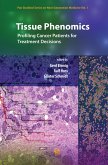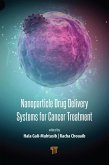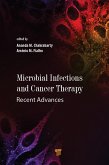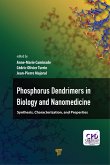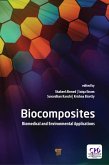In the age of digitization our society is transformed into a new state. In particular, machine intelligence dramatically elevates our capability to create and digest information. Naturally, healthcare is also impacted by this trend and will even be more transformed into a informatic driven discipline in the future. In the most important area of histo-pathology, the interpretation of tissue slices from cancer patients, informatics will have an early and huge impact on treatment decisions and probably will act as the leading discipline for this transformation in medicine. Tissue Phenomics provides a comprehensive methodology aiming at the discovery of the most accurate tissue-based decision support algorithm by close integration of assay development, image analysis and bioinformatics, and optimization feedback loops. In this book the methodology of Tissue Phenomics and its benefits and wealth's are described. The different components of Tissue Phenomics are explained in the different chapters. In the chapters 2 to 4 of this book different authors describe various approaches on how to convert the wealth of tissue slide pixel data into mineable information using knowledge-based and data-driven image analysis methods. Subsequently, the datafication of images and the bioinformatics part plays a crucial role in generating prognostic and predictive models for disease progression. The integration of other data sources such as genomics, radiomics and patient related information is also important and is described as well. As discussed in chapters 5 and 6, these models may classify patients in distinct groups such as those responding to a given therapy. Since Tissue Phenomics provides a huge set of potentially prognostic features (phenes), one focus of both chapters is robust feature selection methods by advanced Monte-Carlo cross validation algorithms. In chapter 7 we discuss multiple application examples of Tissue Phenomics in academic and commercial settings and its tremendous impact to advances in biomedical sciences. Building on the successes in research, chapters 8 and 9 discuss applications in clinical environments and provide a flavor to the future envision in chapter 10, where tissue datafication and subsequent patient profiling is part of every routine examination, with the goal to best match patients with the most successful therapy, as predicted by tissue phenes.
Dieser Download kann aus rechtlichen Gründen nur mit Rechnungsadresse in A, B, BG, CY, CZ, D, DK, EW, E, FIN, F, GR, HR, H, IRL, I, LT, L, LR, M, NL, PL, P, R, S, SLO, SK ausgeliefert werden.



